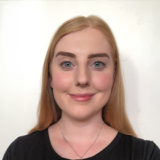Overview
Overview
This multidisciplinary course will give you the knowledge and skills for a career in public health. You’ll contribute to the prevention of disease and disabilities, learning techniques to promote wellbeing at the community or population level.
You’ll learn how psychosocial and environmental factors affect health and wellbeing, and about public health and healthcare systems. You’ll then apply your analytical and planning skills to create evidence-based approaches that align with the United Nations Sustainable Development Goals.
After completing this course, you may apply to study a graduate-entry master course in midwifery, nursing, occupational therapy, physiotherapy, social work or speech pathology.
Choose your specialisation
In your third year of study, you can choose a specialisation in Health Data or Health Sciences, to advance your expertise in those areas, or choose an Accelerated Bachelor Master pathway.
Health Data
Learn how to analyse big data to reveal health patterns and trends, such as the impacts of climate change on health.
You’ll also learn about data capture, cybersecurity and data visualisation, and how artificial intelligence and machine learning are being used in health.
In addition, you’ll build interpretive and decision-making skills and learn how to present results to various audiences, including clinicians, health professionals and the public.
Health Sciences
This specialisation allows you to select multidisciplinary units such as health promotion, sexology, occupational health and safety, and global public health.
Career outcomes are diverse and you’ll be able to tailor your studies to your career goals.
Accelerated Master Degree Pathway
In the third year of your course you'll complete four units from a master degree. You may then choose to continue studying for your master degree.
As an accelerated pathway, this option reduces the time needed to complete the bachelor and master degrees separately by six months.
The specialisations available are:
- Public Health
- Health Administration
- Sexology
- Occupational Health and Safety.
Note: This pathway requires a course-weighted average of 60 or higher after completing 300 credit points.
What jobs can the Health Sciences course lead to?
Careers
- Community development officer
- Health data management officer
- Health data scientist
- Health project consultant
- Health research officer
Industries
- Healthcare
- Government
- Non-government organisations
What you'll learn
- apply discipline knowledge, understand its theoretical underpinnings and ways of thinking; extend the boundaries of knowledge through research
- apply logical and rational processes to analyse the components of an issue; think creatively to generate innovative solutions
- decide what information is needed and where it might be found using appropriate technologies; make valid judgements and synthesise information from a range of sources
- communicate in ways appropriate to the discipline, audience and purpose
- use appropriate technologies recognising their advantages and limitations
- use a range of learning strategies; take responsibility for one's own learning and development; sustain intellectual curiosity; know how to continue to learn as a graduate
- think globally and consider issues from a variety of perspectives; apply international standards and practices within a discipline or professional area
- respect individual human rights; recognise the importance of cultural diversity particularly the perspective of Indigenous Australians; value diversity of language
- work independently and in teams; demonstrate leadership, professional behaviour and ethical practices





